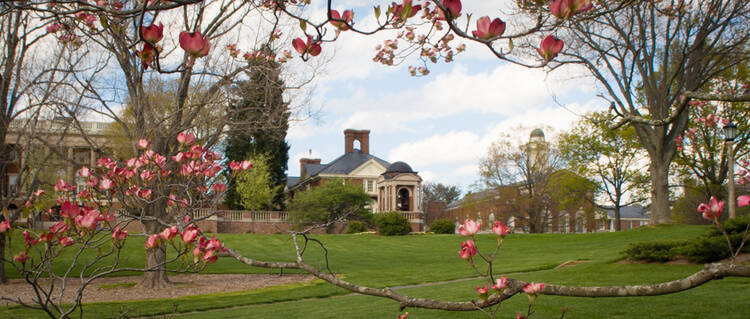Why should we care if Sweet Briar College dies? Most Americans have never heard of it, have no idea where Sweet Briar is or what it does, and, when told it is for at most 700 women, getting a liberal arts education, in a beautiful countryside, conclude that it has violated the laws of the marketplace. Years ago they should have gone big time, tacked on a business school, a school of education and a nursing program and a couple of varsity sports teams to wave a national reputation.
But then it would not have been Sweet Briar with its beautiful 3,250-acre campus in the foothills of the Blue Ridge Mountains, close student-faculty relationships, strong liberal arts curriculum, junior year in Paris and 20,518 alumnae who love it. Unlike any other college I know it also had an equestrian program. As a grown man who started riding horseback at the age of three, I have a strong sense of how the relationship between horses and young people is a powerful source of character development as well as athletic achievement.
Even though the school is small, the sight of these bright young women mastering literature, history and the arts and sciences, enjoying close interaction with their professors—as well a spending a year in Europe—should boost our confidence in the future of American higher education. (As I mentioned in an earlier column, as a Fordham student in Paris in 1953-54, I befriended a lovely Sweetbriar student, Anne, whose memory, to a degree, inspires my support.)
The New York Times, The Wall Street Journal and The Washington Post have reported the strong resistance in the faculty and alumnae to the closing. The interim president responsible, with the board, for the decision was urged by one faculty leader to not attend graduation lest he and his family be greeted with “verbal assault and disdainful treatment.” He stayed home. In the Journal, a prominent alumna, Lurie Lichtlen, attributes the college’s fall to a lack of transparency from the college’s administration. She says, “the Board of Trustees should have been more forthcoming about the college’s challenges, and asked its strongest supporters—alumni and faculty—for help. Instead, the board trusted consultants and surveys.” The faculty have filed a law suit, and in the first week of June, the Virginia Supreme Court will hear an appeal to keep the college open.
According to Peter T. Mitchell, former president of three other colleges, in the Chronicle of High Education, Sweet Briar, and other colleges in the same fix, can still save themselves in three steps. First, remaining a women’s college in rural Virginia is no longer a long-term solution.
Second, create a new operational model. They should eliminate athletics, reduce the size of the staff, foster social responsibility, and start a three-year curriculum, integrating competencies that will distinguish graduates. Attract the students who are “serious and shy,” dislike sports but thrive on music, sing in the choir, act in plays and find meaning in community service. Who actually desire “a rigorous education as the core of college experience.” Emphasize wellness, public speaking, financial literacy, and a spiritual/philosophical grounding that will enable them to flourish.
Third, Sweet Briar should drop its fee from $47,000 to $25,000. The three-year cost would be much lower than public universities. Sweet Briar students would join the work force sooner. Mitchell says media attention for the resurrected Sweet Briar will generate millions of dollars worth of free advertising. Personally I would keep sports that don’t crack brains and engage broader participation: swimming, track, tennis and crew. I would add a campus ministry that integrates the intellectual and spiritual aspects of faith. All this, says Mitchell, goes back to the founding in 1901 which stressed the “sound learning” and “physical, moral, and religious training” to best fit them as "useful members of society.”








